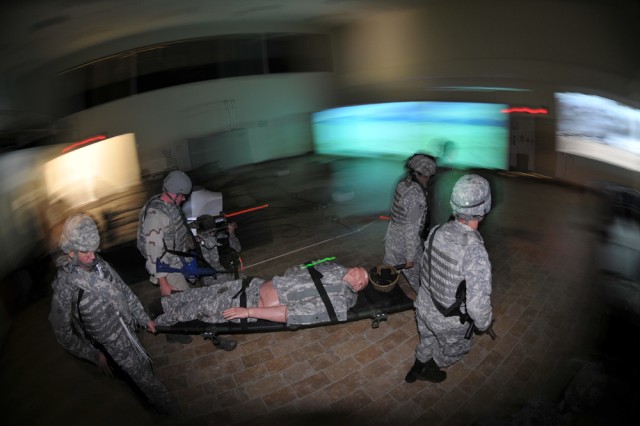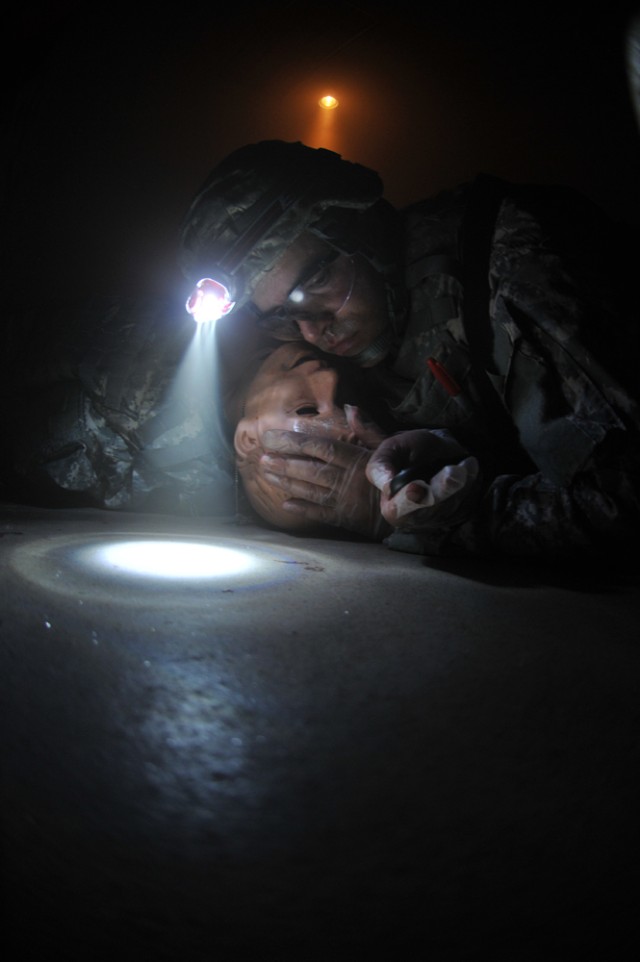FORT WAINWRIGHT, Alaska - The Fort Wainwright Medical Simulation Training Center is no ordinary classroom and the Soldiers who train there leave with extraordinary skills.
Almost 2,000 Soldiers will train at the MSTC this year according to Ralph Wineland, course coordinator and program director. He said this is a combination of active duty Soldiers, Army National Guard and Army Reserve from the state of Alaska. Both medics and combat lifesavers train at the MSTC.
Medics receive 48 hours of training a year to maintain their certifications and combat lifesavers are taught a 40-hour course developing skills that could save a buddy\'s life in combat.
"Basically we train Soldiers to take care of one another in combat," Wineland said. "These are the guys who are right there with their buddies when they get wounded. We have kids come back all the time telling us, if I hadn't been to your course my buddy would have died."
Suzy Coronel, site manager, says the priority for her staff is "making sure that these Soldiers are better trained when they leave, regardless of their level of training prior to getting here and regardless of what their MOS is. Knowing that someone could have a child over there, that needs someone to take care of them and it could be one of these soldiers..."
To make the training realistic it is done in simulated combat conditions and the facility uses what are called tethered mannequins, programmed for different scenarios.
The "dummies" (which the staff says are anything but) are dressed in camouflage clothing that is torn and bloody and some have amputated limbs. They bleed, they breathe, and basically they can do everything that a human can do but get up and walk away. They also respond to the treatment given to them by the Soldier. "
I've been to Combat Lifesaver a couple times. This is different, completely different here. We never treated casualties like this before," said Spc. Shane Johnston-Fisher, 65th Explosive Ordnance Disposal Company, 17th Combat Sustainment Support Battalion. "In other training we put tourniquets on dummies and we wrapped them; but here with the realism, the sight and sound deprivation, flashing lights, you could taste the smoke in your mouth while you're trying to work on somebody."
The importance of the training struck home when he treated a casualty that could have survived, but didn't because he did not work fast enough.
Sgt. Ann Milligan, a licensed practical nurse at Bassett Army Community Hospital said her training "refreshed her on a lot of things I had not used in a long time and gave me a good opportunity to relearn some different and new techniques to some of the old things I already know. Milligan has been deployed three times and appreciated that instructors were able to speak and instruct from personal experience in combat.
"They can train all they want at the units, practice on each other, but they are not going to get the realism they are going to get over here," Wineland said.




Social Sharing